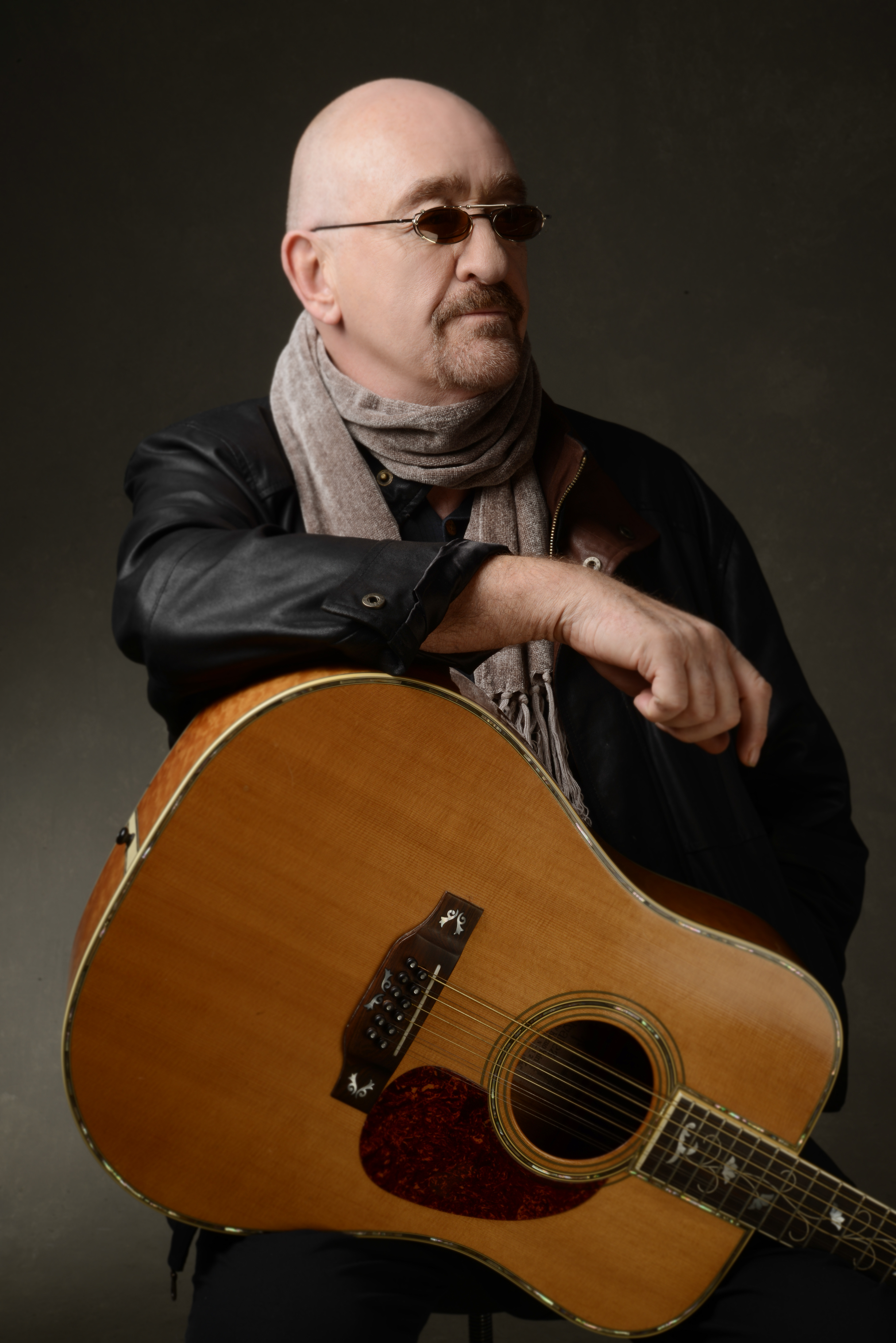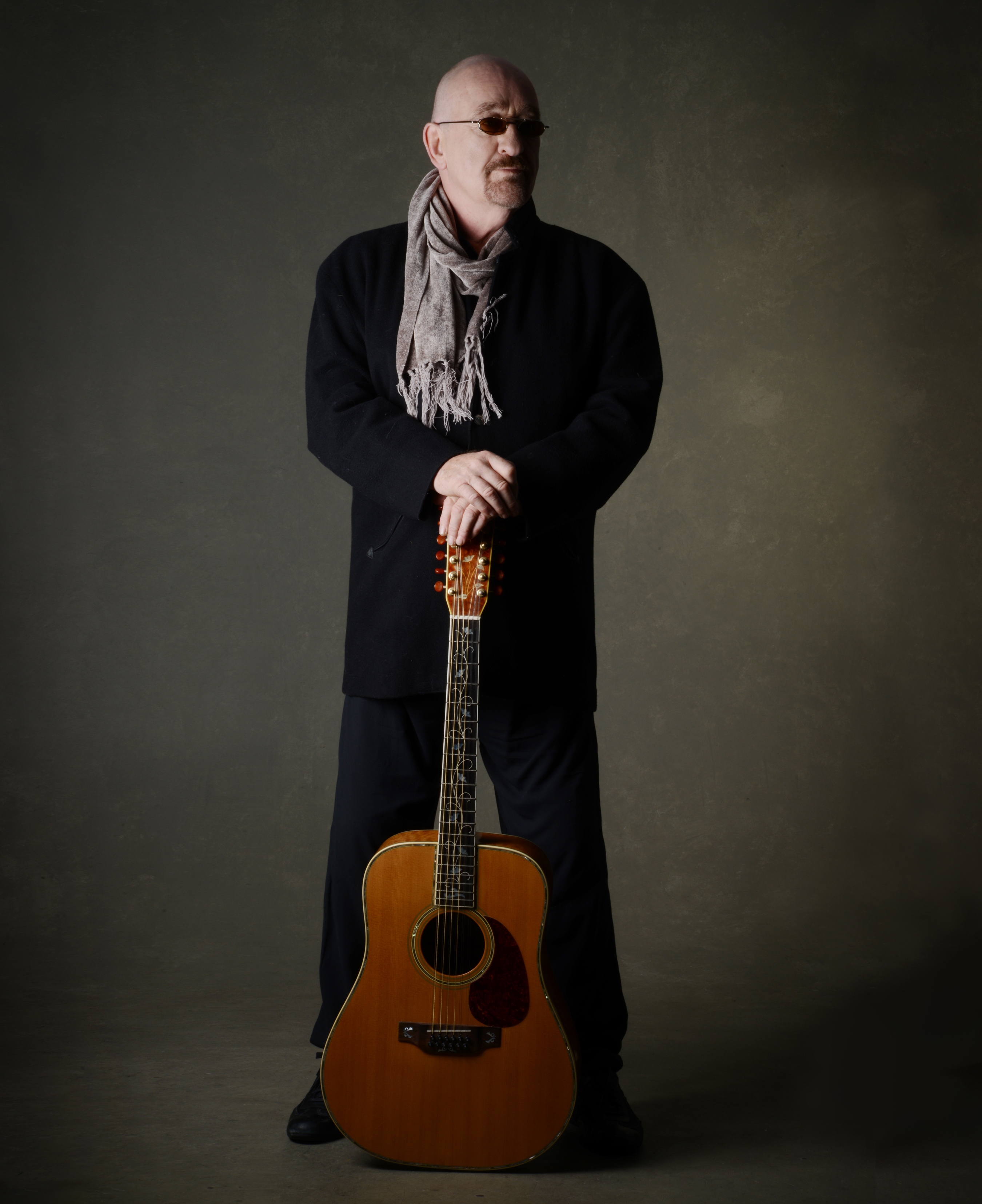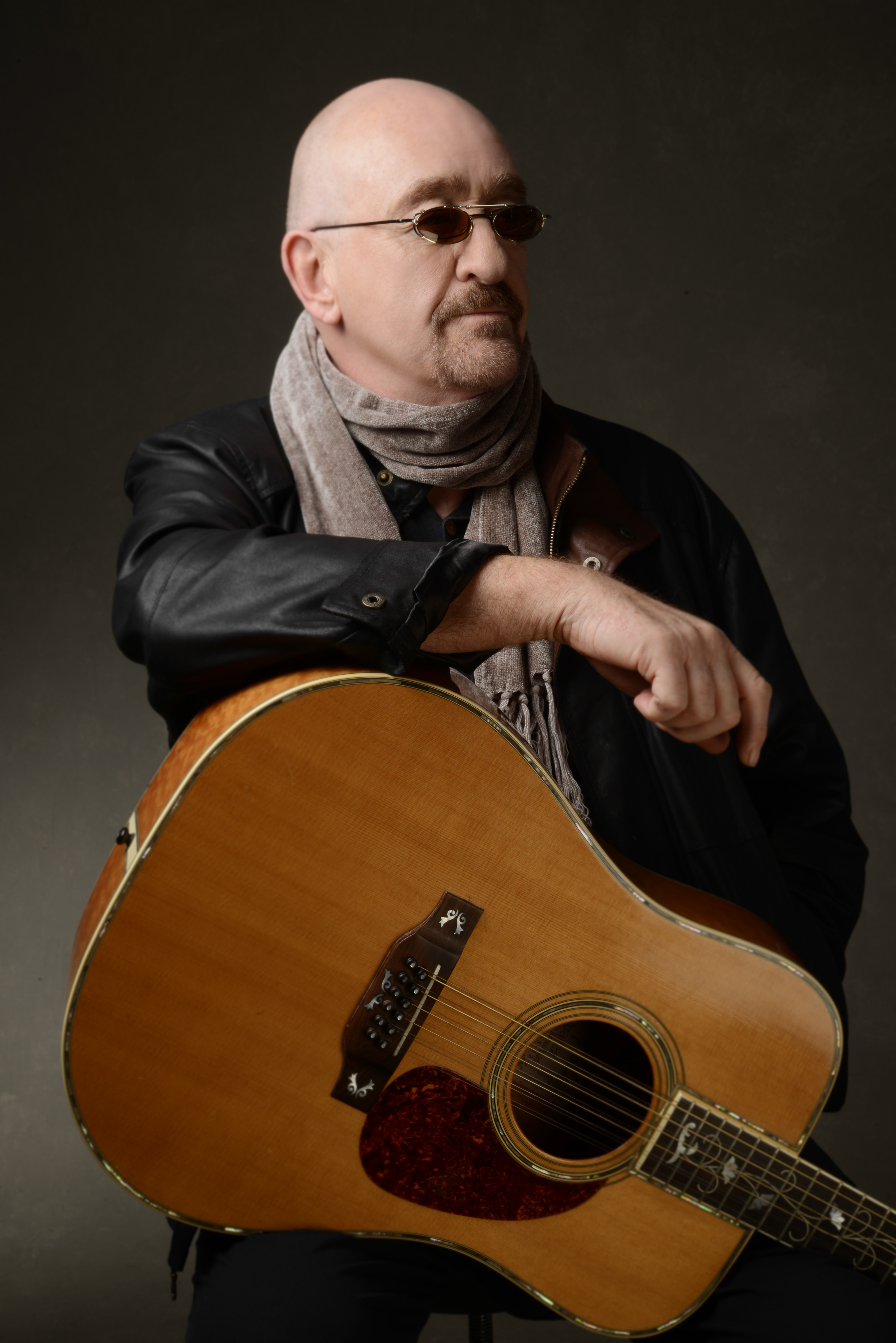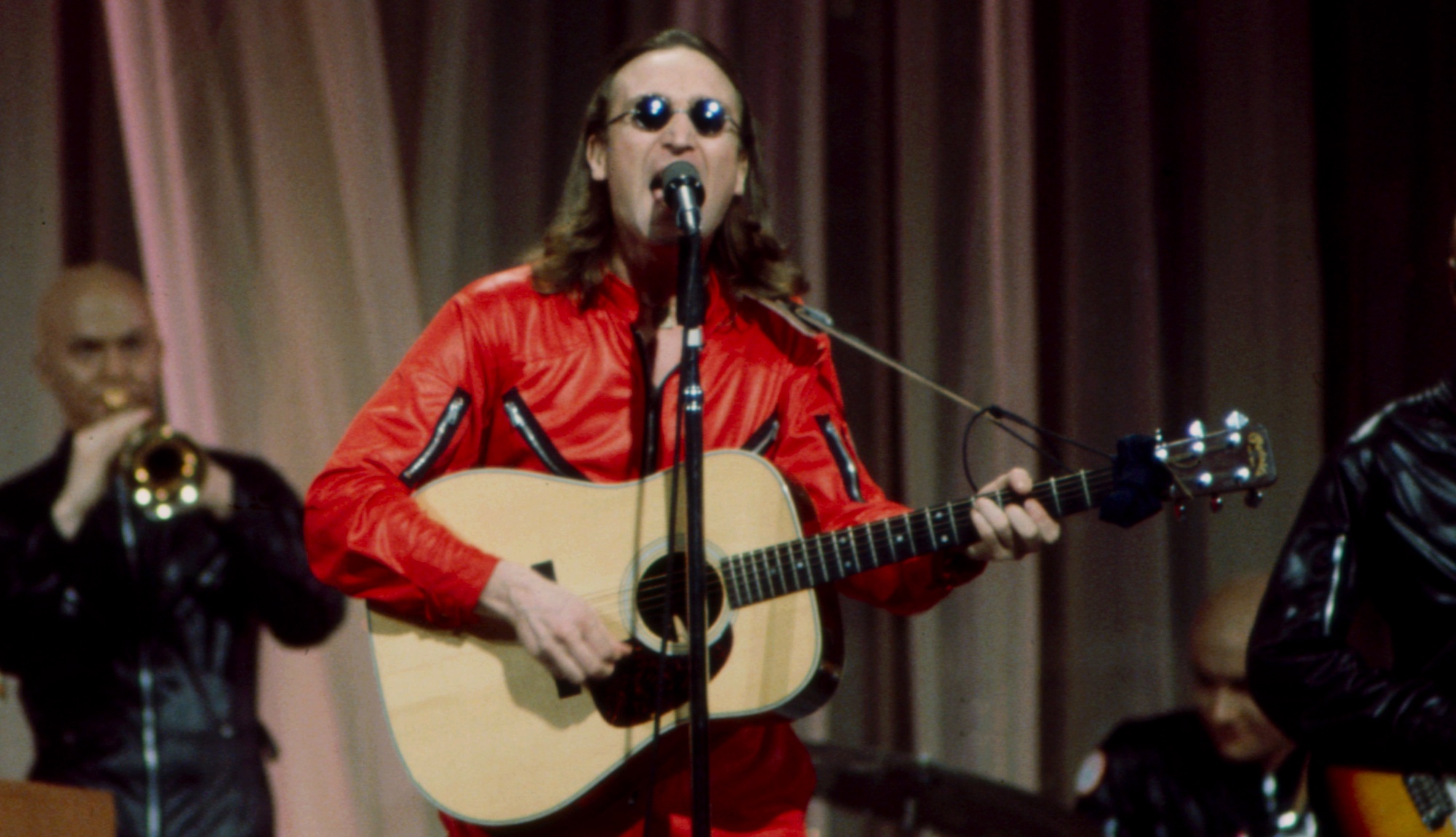Crosstown Traffic: Dave Mason Talks "Traffic Jam" Tour and Recording with Jimi Hendrix
All the latest guitar news, interviews, lessons, reviews, deals and more, direct to your inbox!
You are now subscribed
Your newsletter sign-up was successful

Dave Mason’s name is synonymous with Traffic, a legendary British band that was inducted into the Rock and Roll Hall of Fame in 2004.
These days, the guitarist can be found doing shows from coast to coast with his “Traffic Jam” project.
But Mason also is known for his solo work and his countless collaborations with a veritable who’s who of rock, including members of the Beatles, Rolling Stones, Fleetwood Mac and Jimi Hendrix.
We recently sat down with Mason to discuss the current state of the music industry and his work with Hendrix.
GUITAR WORLD: Since you started in the music industry, so much has changed. You see a lot of artists forgoing new material. What drew you back into doing a new studio album, 2014's Future's Past?
I play around just for my own amusement at home. Economically, it's just a waste of time. Unfortunately, everyone is stealing everything. And it's not just music; it’s literature and anything that can be turned into 0’s and 1’s. That whole part of the artists’ revenue stream and the copyrights, which if you hang onto are the things you pass down to your kids, is getting devalued.
It would be fine if classic rock radio would embrace the fact that there artists doing great new music, and if stations would play and promote them. Even if they'd take the time to say that something new is available on an artist’s website and let it be heard. It has obviously changed with everyone taking this and taking that, but an artist’s reach is not there now with FM radio being so formatted. You can get pissed off or angry, but it is what it is. So now it's back to where it began, where we're back on the road going door to door.
All the latest guitar news, interviews, lessons, reviews, deals and more, direct to your inbox!
You have to feel bad for new artists since they don’t have the benefit of radio to help turn music lovers onto an unknown “Dear Mr. Fantasy."
There used to be someone there, a disc jockey, to play the latest from an artist and give variety. It’s a shame. It’s the way it is, and thank God I can still get my ass on stage and play because I’m not sure what I’d be doing.
How much fun is it going out doing the tours at this stage of your career?
It’s a lot more fun on the basis that I’m consistently coherent as opposed to certain episodes of my misspent youth. I have a great band of guys that love to play and they are cool guys. We are a small unit. We have Tony Patler on keyboards, and he plays bass with his left hand. He’s really damn good. We have Johnne Sambataro as the other guitar player and Alvino Bennett on drums, so there's just the four of us, but there's a lot going on.
On this tour, are you focusing on Traffic's catalog?
Yes. I have this thing out there, Traffic Jam, that I’ve been thinking about for a while. I wasn’t sure if it would be accepted. We visit some early songs from the first two albums. I do my own arrangement of "Low Spark," and then we take a break and I do material from my solo career. There are visual aspects of it and I bullshit some. It’s fun. I have to be out there doing something. I couldn’t just set at home.
Looking at your resume, it is almost mind-blowing to consider the artists you've worked with, including the bulk of the Beatles, Rolling Stones, Jimi Hendrix, Steve Winwood, Fleetwood Mac and others. Is there a “greatest” achievement in your career, or would you prefer not to think of it in those terms?
To me, I’m just another guy who picked up the guitar and went out to make music. Fortunately, I started writing things that resonated with people. I was basically writing for myself, and I still do. I have my own studio and I go in there and fool around. Something pops up and I spend a month or two creating a song or a record. At some point, I’ll put something else out, but that’d probably be through the website or live shows.
With your current tour, you are doing intimate shows? Do you prefer that connection with the audience?
In the Seventies and Eighties, before there was Unplugged, I was out there with just myself and a guitar player. I just try to keep it fun.
Are there any particular guitars in your collection that you really prize?
My custom Tele that Fender put together for me is great. I’ve been playing a version of that for a while. It has a contoured body and a humbucker on the bridge and two Lace Sensors. Gibson built me a guitar that's a Les Paul shape with the thinner, contoured body. It has a tremolo on it. It’s a really cool guitar.
Acoustic-wise, I have an Alvarez-Yairi that they made for me at least 30 years ago. I went and hand-picked all the wood and they made me this 12-string. I used to have a matched set of D-45's in the Traffic days, but a PA stack fell on them. The Alvarez is superb. I have a Taylor that I got when I was in Fleetwood Mac. I also have a tenor-strung guitar that must've been made for David Lindley because his name is on the bridge. I use Alvarez acoustic-electrics on the road. I don’t take the acoustics with me.
Looking at your body of work, working with Hendrix really jumps off the page. How did you end up at the session that let to Hendrix's version of Bob Dylan's “All Along the Watchtower”?
I’d known Jimi for a little while. It was a Saturday or Sunday and we were in London and we got together somewhere. We were invited over to this girl’s apartment. There were a lot of people there, and we just dropped by. She had the first copy of John Wesley Harding, the new Bob Dylan album, and we had to hear it. So we put the album on, and Jimi heard “Watchtower” and wanted to go to the studio and cut it.
There was talk at the time of my playing bass with them. Jimi played bass on pretty much all of Electric Ladyland. It was going to happen, but the manager kind of put a stop to it for some reason. Maybe it was an image thing. But I got to spend some cool time with him. I did some other stuff with him playing bass. I have no idea where those tracks went. I've never heard them.
It seems more and more of Jimi’s material keeps getting unearthed, so we’ll keep our fingers crossed. When and where did you first meet Jimi?
I was fortunate to play with so many people back then. In England everyone finished up in London. It wasn’t like the States where there were different music cities. I saw him in a semi-private club that was an after-hours place in a room that wasn’t 15 feet by 15 feet. Chas [Chandler, of the Animals] took him around to these clubs when he first brought him to London. There was always a band playing. This guy got up, and I didn’t know who the hell he was, and when he started playing, I started thinking I should look into a different instrument [laughs]. He was truly unique.
For more about Mason, including his current touring schedule, visit davemasonmusic.com. His latest album is Future’s Past, which also is available at his website.


